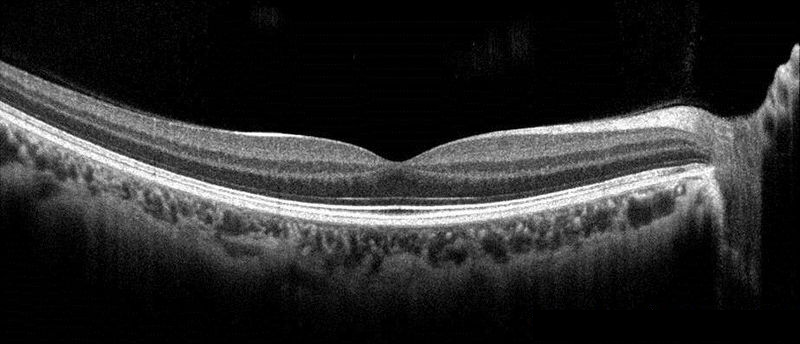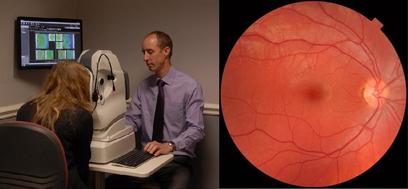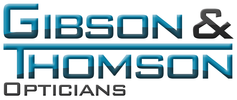 A 2D OCT scan sample
A 2D OCT scan sample
What is OCT?
OCT is similar to an ultrasound scan but uses light rather than sound to look through the layers of the retina, giving us a 3D view of the inside of your eye. When an optometrist looks inside your eye in a standard examination they can see the surface of the retina, but with an OCT scan we can literally see through the surface into the layers beneath. This tells us so much more and can help prevent loss of vision if changes are spotted early.
This is very useful for identifying early signs of macular degeneration and glaucoma, but also shows other changes happening beneath the surface of the retina, some of which are natural age related changes. If they are not expected, the scan helps us decide if treatment is necessary to prevent future loss of vision. This can be truly sight saving in some cases. Also, as a result of having more information, we can make an informed judgement about whether or not to refer. This can save people unnecessary hospital visits.
Enhanced examinations also include retinal photographs, sometimes referred to as fundus photography. This allows us to see a large area of the retina in one image, and aids comparison from one eye examination to the next.
OCT is similar to an ultrasound scan but uses light rather than sound to look through the layers of the retina, giving us a 3D view of the inside of your eye. When an optometrist looks inside your eye in a standard examination they can see the surface of the retina, but with an OCT scan we can literally see through the surface into the layers beneath. This tells us so much more and can help prevent loss of vision if changes are spotted early.
This is very useful for identifying early signs of macular degeneration and glaucoma, but also shows other changes happening beneath the surface of the retina, some of which are natural age related changes. If they are not expected, the scan helps us decide if treatment is necessary to prevent future loss of vision. This can be truly sight saving in some cases. Also, as a result of having more information, we can make an informed judgement about whether or not to refer. This can save people unnecessary hospital visits.
Enhanced examinations also include retinal photographs, sometimes referred to as fundus photography. This allows us to see a large area of the retina in one image, and aids comparison from one eye examination to the next.
 A sample fundus image
A sample fundus image
If you opt for an enhanced examination, our optometrists will show you the images of your eye similar to the above pictures, and discuss any areas of interest.
Both of these scans together provide us with an exact and permanent record of the back of your eye. Building up a set of images over a period of time gives us a clearer view of any changes taking place, and helps us understand what is normal for your eyes.
Considering all the above, it is hardly surprising that optometrists recommend everybody should have an OCT scan and retinal photograph as part of their routine eye examination. While they are not part of a standard NHS or private sight test, both scans together cost £32.00, which represents good value for peace of mind.
A standard sight test typically takes around 25 minutes, and if you opt for an enhanced examination you should allow around 45 minutes. If you are undecided about whether you would benefit from an enhanced examination, our optometrists will be able to advise you during your eye test, or you can ask our practice staff for more details before you make your appointment.
Both of these scans together provide us with an exact and permanent record of the back of your eye. Building up a set of images over a period of time gives us a clearer view of any changes taking place, and helps us understand what is normal for your eyes.
Considering all the above, it is hardly surprising that optometrists recommend everybody should have an OCT scan and retinal photograph as part of their routine eye examination. While they are not part of a standard NHS or private sight test, both scans together cost £32.00, which represents good value for peace of mind.
A standard sight test typically takes around 25 minutes, and if you opt for an enhanced examination you should allow around 45 minutes. If you are undecided about whether you would benefit from an enhanced examination, our optometrists will be able to advise you during your eye test, or you can ask our practice staff for more details before you make your appointment.
